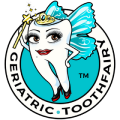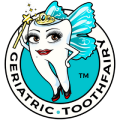Table of Contents
ToggleThe Overlooked Role of Oral Care in Germ Prevention
We all know how quickly germs spread. Whether it’s the flu season, a cold, or a contagious virus, keeping our homes and communities clean is crucial. However, one area often overlooked in the battle against germs is oral care—especially in senior communities.
I have walked into nursing homes, assisted living facilities, and even private homes where germs are running rampant due to neglect of basic oral hygiene. And also witnessed the frustration of caregivers, the pain of seniors, and the overwhelming task of keeping everyone healthy. Geriatric dental hygiene isn’t just about healthy teeth and gums—it’s about keeping seniors safe from harmful germs that can lead to infections, hospitalizations, and even death.
For ourselves and our families, we must understand just how important mobile hygiene services are in reducing these risks. In this post, I’ll explain why mobile hygiene services are critical in preventing the spread of germs, especially in senior communities, and provide actionable steps to help integrate them into daily care routines.
Why Mobile Hygiene Services Matter for Senior Health
As we age, our ability to fight infections weakens. Seniors are even more susceptible to germs and infections due to conditions like weakened immune systems, medications that reduce saliva secretion (causing dry mouth), and limited mobility that makes regular dentist visits difficult. According to the CDC, senior citizens are at a higher risk for pneumonia, often caused by oral bacteria that is inhaled into the lungs. But this isn’t just about oral health—oral hygiene is directly linked to overall well-being.
This is where mobile hygiene services make all the difference. These services bring professional dental care to seniors where they live, be it in nursing homes, assisted living facilities, or even at home. Instead of waiting for a senior to make a dental appointment—which often doesn’t happen due to transportation barriers, physical limitations, or lack of awareness—mobile hygiene services come to them, ensuring they get the care they need.
3 Ways Mobile Dental Hygiene Services Can Prevent Infections
1. Reducing the Bacterial Load in the Mouth
The mouth is one of the main entry points for bacteria into the body. When seniors have untreated gum disease, tooth decay, or dry mouth, harmful bacteria flourish in the mouth, putting them at greater risk for infections. In fact, research from the World Health Organization (WHO) shows that poor oral hygiene is one of the main contributors to systemic infections in the elderly, including pneumonia and heart disease.
Mobile hygiene services help reduce the bacterial load in the mouth, significantly lowering the risk of these infections. When hygienists perform regular cleanings, they remove harmful plaque and bacteria from the teeth and gums, preventing the build-up that leads to further complications.
What you can do:
- Encourage regular mobile hygiene visits: Seniors in nursing homes or assisted living can benefit greatly from routine visits by mobile hygienists who can provide consistent care.
- Promote preventive education: Caregivers and families should be educated on the importance of oral hygiene in preventing systemic infections.
This simple action of cleaning the mouth regularly can be the difference between preventing a costly hospital visit or an outbreak of germs that can spread to others.
2. Preventing Cross-Contamination in Care Facilities
In crowded senior care facilities, germs spread quickly. A single case of a cold, flu, or any other contagious disease can turn into an outbreak if proper precautionary measures are not in place. Poor oral hygiene can contribute to this spread, as bacteria can easily be transferred from one person to another through shared utensils, cups, or even the air.
The beauty of mobile hygiene services is that they bring care directly to individuals, reducing the need for seniors to move between spaces or interact with others who may be carrying germs. The hygienist comes to the resident’s room, completes the necessary cleaning, and leaves without contaminating communal spaces or passing germs to others.
What you can do:
- Implement strict hygiene protocols: Ensure that all mobile hygienists and caregivers are using proper protective equipment, including gloves and masks, to reduce cross-contamination during visits.
- Set up a routine cleaning schedule: Establish a routine that schedules mobile hygiene visits for all residents. This reduces the chance of germs accumulating and spreading within the facility.
By bringing dental care directly to seniors, mobile hygiene services ensure a higher level of infection control in these environments, helping prevent outbreaks of germs.
3. Reducing the Risk of Aspiration Pneumonia
Aspiration pneumonia is one of the leading causes of death in the elderly, and it often results from bacteria in the mouth being inhaled into the lungs. This happens when seniors, especially those with dementia or stroke-related impairments, have difficulty swallowing and cleaning their mouths. The CDC highlights that seniors with poor oral hygiene are at a significantly higher risk for aspiration pneumonia.
Mobile hygiene services play a crucial role in preventing aspiration pneumonia by ensuring that seniors’ mouths are cleaned regularly. Professional hygienists can also spot early signs of gum disease or tooth decay that could contribute to harmful bacteria in the mouth.
What you can do:
- Encourage caregivers to assist with daily oral care: Even if a senior has physical limitations, caregivers should help with brushing teeth or using an oral rinse to remove bacteria.
- Schedule mobile visits regularly: Having a hygienist visit every few months will help ensure that oral health issues are caught early before they become a serious problem.
When seniors receive professional oral care, the likelihood of aspiration pneumonia significantly decreases, which ultimately helps preserve their health and dignity.
Why Mobile Hygiene Services Are Crucial for Dignity and Family Well-being
Oral health is more than just a cosmetic issue. It is more about maintaining an individual’s dignity. Seniors who are unable to smile, speak clearly, or eat comfortably due to oral health problems suffer from feelings of isolation and embarrassment. As we age, physical limitations and financial barriers may keep us from receiving the care we need. However, mobile hygiene services ensure that everyone, regardless of their mobility or financial situation, are able to maintain their health and dignity.
When caregivers, family members, and healthcare providers join forces to support seniors’ oral health, they’re not just preserving teeth—they’re preserving quality of life. For ourselves and our families, we must support initiatives like mobile hygiene services that make oral care accessible to everyone. The dignity of our loved ones is paramount, and mobile hygiene services can make a profound difference in their lives.
The challenges of senior dental care may seem overwhelming at times, but there are tangible solutions—especially when it comes to mobile hygiene services. These services have the potential to drastically reduce the spread of germs in senior communities and improve the overall well-being of older adults.
Together, we can ensure that all seniors receive the oral care they deserve. We can reduce the spread of germs, prevent infections, and protect the dignity of the elderly. For ourselves and our families, let us commit to making mobile hygiene services a standard of care in every community.


